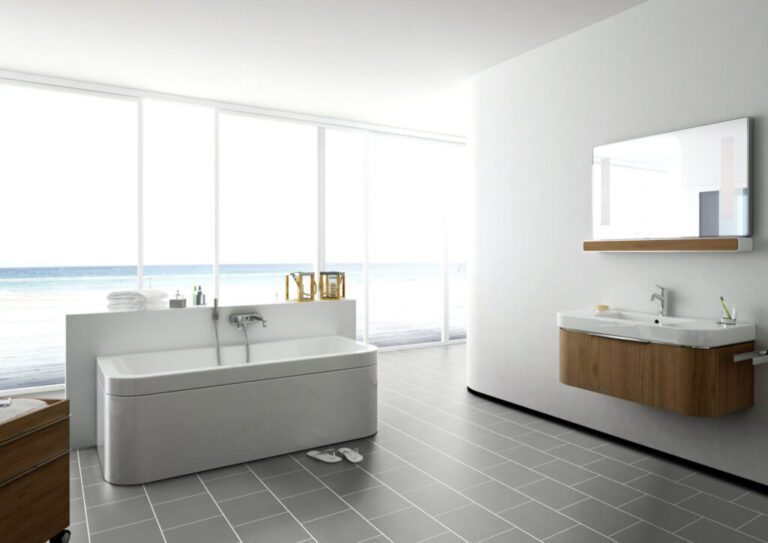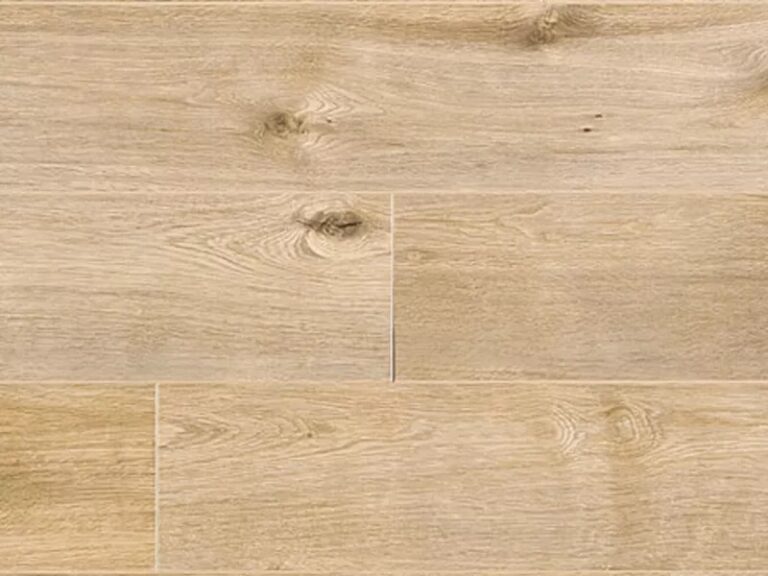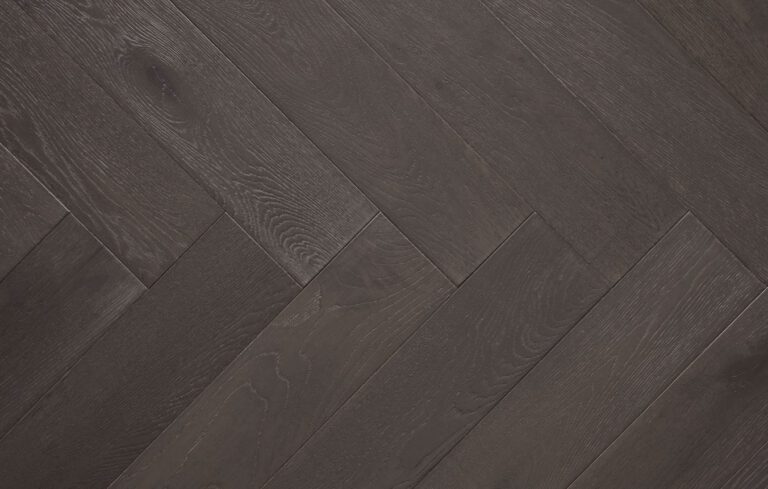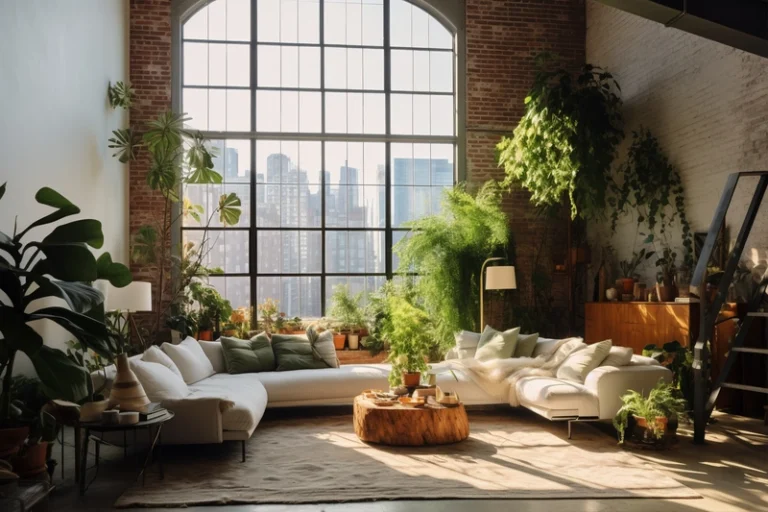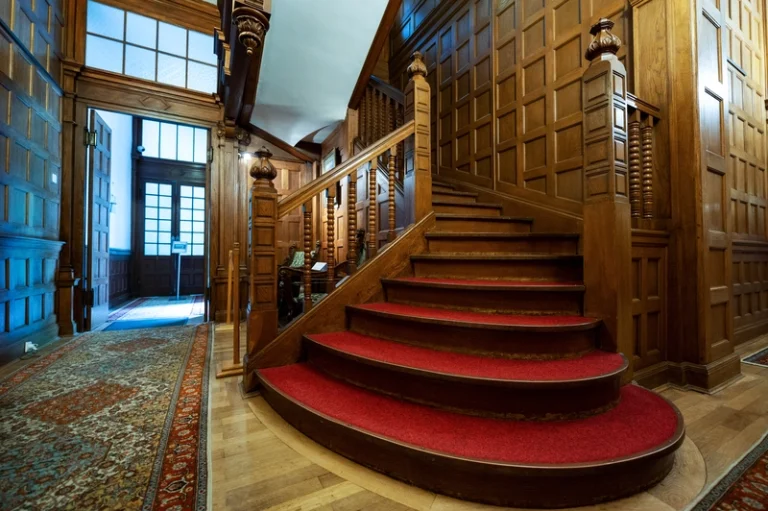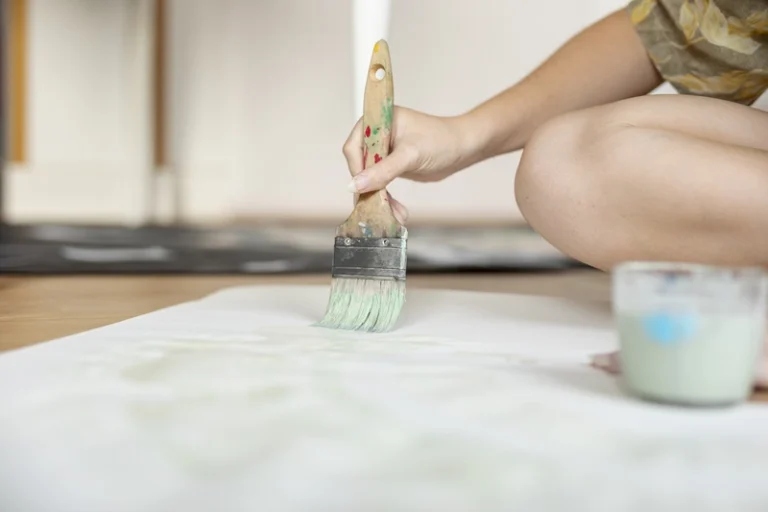Are you opening a new shop or considering renovating your current one? Choosing the best flooring for shops is essential to create a welcoming and functional space for your customers.
Factors such as durability, maintenance, aesthetics, cost, safety, and comfort all play a role in selecting the best flooring option for your shop.We will explore the different types of commercial flooring available, compare their pros and cons, and recommend the best options for various types of shops. Let’s dive in and find the best flooring for shops!
Factors to Consider When Choosing Best Flooring for Shops
What is the best flooring for a shop? Selecting the perfect flooring for your retail space involves evaluating various critical factors that can influence the overall performance and appearance of your shop.
One of the most crucial elements to consider when deciding on the right flooring is durability. The flooring in a shop is subject to high foot traffic, potential spills, and constant movement, making it essential to choose a material that can withstand these challenges. Opting for durable flooring helps maintain the longevity of your shop’s aesthetic appeal while requiring minimal upkeep.
The aesthetic aspect cannot be overlooked. The flooring sets the tone for the entire shopping experience, contributing to the overall ambience and customer perception. Whether you prefer a sleek modern look, a rustic feel, or a vibrant atmosphere, the right flooring can enhance your shop’s visual appeal and brand identity.
a. Durability
When considering the durability of flooring options for shops, materials like vinyl, hardwood, laminate, and epoxy stand out for their ability to withstand the heavy foot traffic and wear and tear common in retail environments.
High-quality vinyl flooring offers impressive durability, capable of resisting scratches, stains, and moisture, making it a practical choice for retail spaces. Hardwood flooring, known for its timeless appeal, is also remarkably durable and can be refinished to maintain its lustre even with heavy use.
On the other hand, laminate flooring mimics the look of hardwood but requires less maintenance, providing a cost-effective yet durable option for shops. Epoxy flooring, a popular choice for industrial settings, boasts exceptional toughness and chemical resistance, ensuring long-lasting performance in retail environments.
b. Maintenance and Cleaning
Efficient maintenance and cleaning play a crucial role in preserving the visual appeal and longevity of the flooring selected for your retail shop, requiring a strategic approach tailored to the specific flooring range and options available in the market.
Regarding hardwood flooring, it is essential to sweep or vacuum regularly to prevent scratches caused by dirt and debris. Using a specially formulated wood cleaner to mop the floors occasionally can help maintain their shine. For vinyl or laminate flooring, a damp mop with a mild detergent solution is recommended to remove stains and grime without damaging the surface. For carpeted areas, investing in a high-quality vacuum cleaner with adjustable settings is crucial to ensure deep cleaning and proper maintenance.
c. Aesthetics and Design
The aesthetics and design elements of flooring choices in retail stores contribute significantly to the overall ambience and visual identity of the space, with options like quartz, decorative flooring, and luxury vinyl offering diverse styles to align with specific retail store design themes.
When designing a retail space, every aspect plays a crucial role in creating the desired atmosphere that resonates with customers. Flooring, being one of the most prominent design elements, not only impacts the visual appeal but also influences the customer’s perception of the brand.
Quartz flooring, known for its durability and sophisticated look, adds a touch of elegance to high-end boutiques or jewellery stores. On the other hand, decorative flooring, with its artistic patterns and vibrant colours, can infuse a sense of creativity and playfulness, making it ideal for trendy fashion outlets.
Luxury vinyl offers versatility in mimicking various materials like hardwood or stone, allowing for a cost-effective option while maintaining a luxurious appearance. By strategically selecting the right flooring materials, retail store owners can enhance the overall customer experience and create a memorable shopping environment.
d. Cost
Cost considerations play a pivotal role in determining the suitable flooring for your retail space, requiring a balance between upfront expenses, long-term maintenance costs, and the overall investment in the retail flooring selection process.
When evaluating the cost factor, it is essential to look at the initial cost of the flooring material itself, as well as the expenses involved in the installation, which can vary based on the type of flooring chosen.
- Budget constraints often guide decision-making, influencing whether to opt for more affordable options like laminate or vinyl or invest in premium choices such as hardwood or polished concrete.
Considering the long-term financial implications is crucial. High-quality durable flooring may require a larger upfront investment but can prove to be cost-effective over time due to reduced maintenance and replacement costs.
e. Safety and Comfort
Ensuring the safety and comfort of customers and staff within your retail environment is paramount when selecting suitable flooring options.
Creating a welcoming and secure space for shoppers should be a top priority for all retail establishments. Safe and comfortable flooring not only enhances the overall aesthetics but also plays a crucial role in preventing accidents and injuries.
For instance, non-slip flooring is suitable for a bar or pub to ensure safety, while a sports shop can incorporate cushioned flooring for added comfort for shoppers trying on sports shoes. On the other hand, a clothing store can utilise durable and easy-to-clean flooring to maintain both safety and hygiene standards.
Striking the right balance between safety, aesthetics, and comfort in your retail flooring can significantly impact the overall shopping experience.
Types of Flooring for Shops
What are store floors made of? Various types of flooring materials cater to the unique needs of retail spaces, including vinyl, hardwood, laminate, and epoxy, each offering distinct characteristics that can enhance the aesthetics and functionality of a shop.
Regarding selecting the best flooring for a shop, sheet vinyl flooring for retail stands out for its durability and water resistance, making it ideal for high-traffic areas. On the other hand, hardwood exudes a sense of warmth and elegance, creating a sophisticated ambience in retail settings.
Laminate flooring is known for its versatility and affordability, offering a wide range of designs to suit different branding aesthetics. Additionally, epoxy flooring provides a seamless and easy-to-clean surface, perfect for showcasing products in a visually appealing manner.
a. Hardwood
Hardwood flooring presents a classic and elegant option for retail spaces, adding a touch of sophistication and warmth to the overall ambience of a shop, making it a popular choice among various retail flooring ranges.
One of the timeless appeals of hardwood flooring in retail design is its ability to create a sense of luxury and high-end aesthetics, attracting customers and enhancing the shopping experience. The durability of hardwood floors ensures longevity, standing the test of time in high-traffic areas of a shop, and maintaining its beauty for years to come. The easy maintenance of hardwood flooring makes it a practical choice for busy retail environments, requiring simple cleaning routines to keep it looking pristine.
See product: Elka 12.5mm Real Wood Fawn Oak
b. Laminate
Laminate flooring offers a cost-effective and versatile solution for retail businesses seeking a balance between visual appeal and practicality, with a wide range of design options available to align with specific retail flooring preferences.
One of the key advantages of laminate flooring for retail applications is its affordability, making it an attractive option for businesses looking to upgrade their store floors without breaking the bank. The design versatility of laminate flooring allows retailers to create various atmospheres within their stores, from modern and chic to classic and elegant, catering to different brand identities and customer preferences.
See product: Quick-Step Classic Misty Grey Oak
c. Vinyl
Vinyl flooring stands out as a popular choice for retail environments due to its durability, low maintenance requirements, and ease of installation, making it a practical and cost-effective solution for retail flooring installations.
One of the key benefits of sheet vinyl flooring in retail spaces is its resilience to high foot traffic and heavy loads, ensuring long-lasting performance in commercial settings. The variety of design options available with vinyl flooring allows retailers to create a customised look that aligns with their branding and aesthetic preferences.
When considering the installation efficiency of sheet vinyl flooring, its ability to be laid quickly and easily over existing subfloors makes it a practical choice for retail spaces looking to minimise downtime during renovations. The seamless installation process also helps maintain a clean and professional appearance throughout the store.
See product: Amor Covilha
d. Tile
Tile flooring offers a versatile and durable option for commercial settings, providing a range of patterns, colours, and materials to suit diverse retail flooring options and preferences.
Regarding retail spaces, the durability of tile flooring is a significant advantage. Its resistance to wear and tear makes it ideal for high-traffic areas where constant footfall is a common occurrence. The ease of maintenance associated with tile flooring is a key benefit for businesses, as regular cleaning and upkeep can help maintain a polished and professional appearance.
e. Carpet
Carpet flooring offers a soft and comfortable option for retail environments, providing insulation, sound absorption, and design flexibility to enhance the overall ambience and comfort of retail space.
One of the key advantages of carpet flooring in retail settings is its exceptional insulation properties. Not only does it help maintain a comfortable temperature within the space, minimising the need for additional heating or cooling, but it also aids in noise reduction, creating a more peaceful shopping environment.
The acoustic benefits of carpet cannot be overlooked in a bustling retail setting. The soft fibres of the carpet dampen noise, reducing echoes and creating a more pleasant atmosphere for both customers and staff.
Carpet allows for a high level of customisation, enabling retailers to choose from a wide range of colours, patterns, and textures to match their branding or create distinct zones within the store. This design flexibility adds a touch of elegance and warmth to the overall shopping experience.
See product: Victoria Carpets Habberley Classic Moonshadow
Comparison of Different Flooring Types
An in-depth comparison of various flooring types such as epoxy, quartz, and decorative flooring, allows for a detailed evaluation of their unique features, benefits, and suitability for different retail environments.
When considering aesthetics, decorative flooring often stands out for its versatility in achieving a range of visual effects, from modern minimalist looks to intricate designs that mimic natural materials. On the other hand, epoxy flooring offers a seamless, industrial-chic aesthetic that is popular in high-traffic areas.
Regarding maintenance, quartz flooring emerges as a low-maintenance option, requiring simple cleaning routines to keep its glossy finish intact. Design options vary greatly among these materials, with decorative flooring offering endless possibilities for customisation.
a. Durability
Regarding durability, hardwood flooring, laminate, vinyl, tile, and carpet have distinct advantages and considerations based on their material composition and suitability for different retail environments.
Hardwood flooring is renowned for its timeless elegance and natural beauty, making it a popular choice for upscale retail spaces. Its durability stems from the solid wood construction, offering remarkable resistance to wear and tear. Laminate flooring, on the other hand, provides a cost-effective alternative that mimics the appearance of hardwood but is engineered for enhanced scratch resistance.
Meanwhile, vinyl flooring excels in durability due to its waterproof and stain-resistant properties, making it ideal for high-traffic retail areas prone to spills and moisture. Tile flooring, known for its strength and versatility, offers exceptional durability against heavy foot traffic and is effortless to maintain.
Carpet, although softer underfoot, may require more frequent cleaning to uphold its appearance and longevity in a busy retail environment. Each flooring type brings unique durability features and considerations that cater to diverse needs in the commercial flooring sector.
b. Maintenance and Cleaning
Maintenance and cleaning requirements vary across flooring types, necessitating tailored approaches to preserve the condition and longevity of retail flooring options, considering factors like material compatibility and specific commercial flooring needs.
For hard surfaces like vinyl or laminate flooring, regular sweeping and occasional mopping with a gentle cleanser are typically sufficient.
Wood floors, on the other hand, may require specialised wood cleaners and periodic resealing to maintain their lustre and resist moisture damage.
Regarding carpeted areas, vacuuming daily and investing in professional deep cleaning services periodically can help extend the carpet’s lifespan and keep it looking fresh.
c. Aesthetics and Design
Aesthetics and design play a pivotal role in selecting flooring options, with materials like quartz, and decorative flooring offering unique visual appeal and customisation opportunities, enhancing the overall design and ambience of retail spaces.
Quartz flooring, known for its sleek and modern look, provides a luxurious feel that elevates the atmosphere of any retail store. On the other hand, decorative flooring offers a wide array of patterns, colours, and textures, allowing for endless design possibilities. When considering installation, quartz requires professional expertise due to its precise fitting, while decorative flooring offers more flexibility in design layouts.
d. Cost
Cost comparisons among different flooring types take into account factors like installation expenses, material costs, and long-term maintenance requirements, influencing the overall financial investment and decision-making process for retail businesses and their flooring selection.
When considering budget constraints, businesses must weigh the initial outlay for materials and labour against the projected durability of the chosen floor. For instance, while vinyl flooring may have a lower upfront cost compared to hardwood, it might require frequent replacement due to wear and tear, leading to higher long-term expenses.
Installation costs also play a crucial role, with specialised floorings like carpet tiles requiring professional installation, which can add significantly to the total expenditure.
e. Safety and Comfort
Prioritising safety and comfort considerations in flooring choices is essential for retail spaces like beauty and salon shops, as well as home and furniture stores, with real-world examples showcasing successful implementations of safety-conscious and comfortable flooring solutions.
When considering the safety aspect, it is crucial to opt for flooring materials that provide adequate slip resistance, especially in spaces where spills or moisture are common, such as beauty and salon shops. Non-slip flooring options like textured tiles or vinyl can significantly reduce the risk of accidents. These floorings are also easy to clean, maintaining a hygienic environment. Conversely, comfort is equally vital, particularly in spaces where customers spend extended periods. Carpeted areas or cushioned vinyl flooring can create a cosy and welcoming atmosphere for home and furniture stores.
Best Flooring Options for Different Types of Shops
Tailoring flooring choices to suit the unique requirements of various shop types, such as clothing and retail shops, restaurants and cafes, grocery and convenience stores, beauty and salon shops, and home and furniture stores, ensures the optimal selection of flooring solutions that align with each establishment’s specific needs.
a. Clothing and Retail Shops
For clothing and retail shops, the ideal flooring options combine elements of style, durability, and practicality, with luxury vinyl flooring emerging as a popular choice that complements diverse retail store designs and flooring options.
When selecting flooring for clothing and retail shops, it is crucial to consider not only the aesthetic appeal but also the resilience to heavy foot traffic and spills. The versatility of luxury vinyl flooring makes it a top contender, as it offers a wide range of styles and designs to suit various retail themes and atmospheres.
Luxury vinyl flooring seamlessly balances elegance with functionality, providing a durable and easy-to-maintain surface that can withstand the demands of a busy retail environment. Its cost-effectiveness and long-lasting properties make it an attractive option for businesses looking to upgrade their store flooring.
See product: Karndean Art Select Oak Royale Glacier Oak
b. Restaurants and Cafés
Restaurants and cafes benefit from durable and easy-to-clean flooring solutions like epoxy, designed to withstand high traffic, spills, and frequent cleaning routines in demanding commercial flooring environments.
When choosing resilient flooring for a restaurant or cafe, it’s crucial to consider the wear and tear that comes with daily operations.
Epoxy flooring is known for its resilience against scratches, stains, and moisture, making it ideal for busy kitchen areas and dining spaces.
The seamless application of these flooring options not only enhances the aesthetic appeal of the space but also simplifies maintenance, allowing for quick and thorough cleanliness after busy service hours.
c. Grocery and Convenience Stores
Supermarkets and corner shops benefit from practical and low-maintenance flooring options, emphasising the importance of commercial flooring choices that prioritize ease of installation, cleanliness, and longevity in high-traffic retail environments.
When selecting flooring for these types of establishments, durability should be a key consideration. Materials like luxury vinyl tile (LVT) and epoxy flooring can withstand heavy foot traffic and spills while being easy to clean. Incorporating seamless flooring solutions can prevent dirt buildup and make maintenance hassle-free. Embracing non-slip surfaces is crucial to ensuring customer safety, especially in areas prone to moisture. Utilising sustainable flooring options not only benefits the environment but also portrays a positive image to eco-conscious shoppers. Remember, the right flooring choice can significantly impact the overall shopping experience for customers.
d. Beauty and Salon Shops
Beauty and salon shops require flooring choices that prioritise aesthetics, safety, and comfort, with decorative flooring options tailored to create a welcoming and secure environment that enhances the overall appeal and ambience of the retail space.
Regarding selecting the ideal flooring for beauty and salon shops, it’s crucial to strike a balance between style and practicality, ensuring that the flooring not only looks visually appealing but also meets the safety standards required for high-traffic retail settings.
- Non-slip flooring options are particularly essential in these environments to prevent accidents and ensure a safe experience for both staff and customers.
- Incorporating water-resistant and easy-to-clean flooring materials is a smart choice, considering the inevitable spillages and frequent cleaning routines common in beauty and salon establishments.
e. Home and Furniture Stores
Home and furniture stores benefit from flooring choices that blend style and functionality, with options like hardwood, laminate, and vinyl flooring offering a balance of visual appeal, durability, and versatility to complement diverse retail flooring selections.
Hardwood flooring adds a timeless elegance to the space, creating a warm and inviting atmosphere. On the other hand, laminate flooring presents a cost-effective solution without compromising on aesthetics, mimicking the look of natural wood or stone. Vinyl flooring, known for its water-resistant properties, is a practical choice for areas prone to moisture, such as kitchens or bathrooms. Each flooring type brings its unique characteristics, catering to different styles and needs of the customers visiting a home or furniture store.
These are some types of carpets you can choose to enhance customer experience. Once you’ve determined the best types of carpets to use, you can quickly get your choice of carpet at TEKA Flooring.
Not just providing various types of high-quality flooring, TEKA Flooring also provides experts and fitting services to fulfil all your flooring needs, whether for residential, commercial, or specialised projects such as hospital-grade floor installation.
With more than 30 years of combined experience, you can rest assured that you will be guided in terms of design, technical requirements, and measurements. Call us today to get a FREE quote on 01733 731 930.
Read Also:









